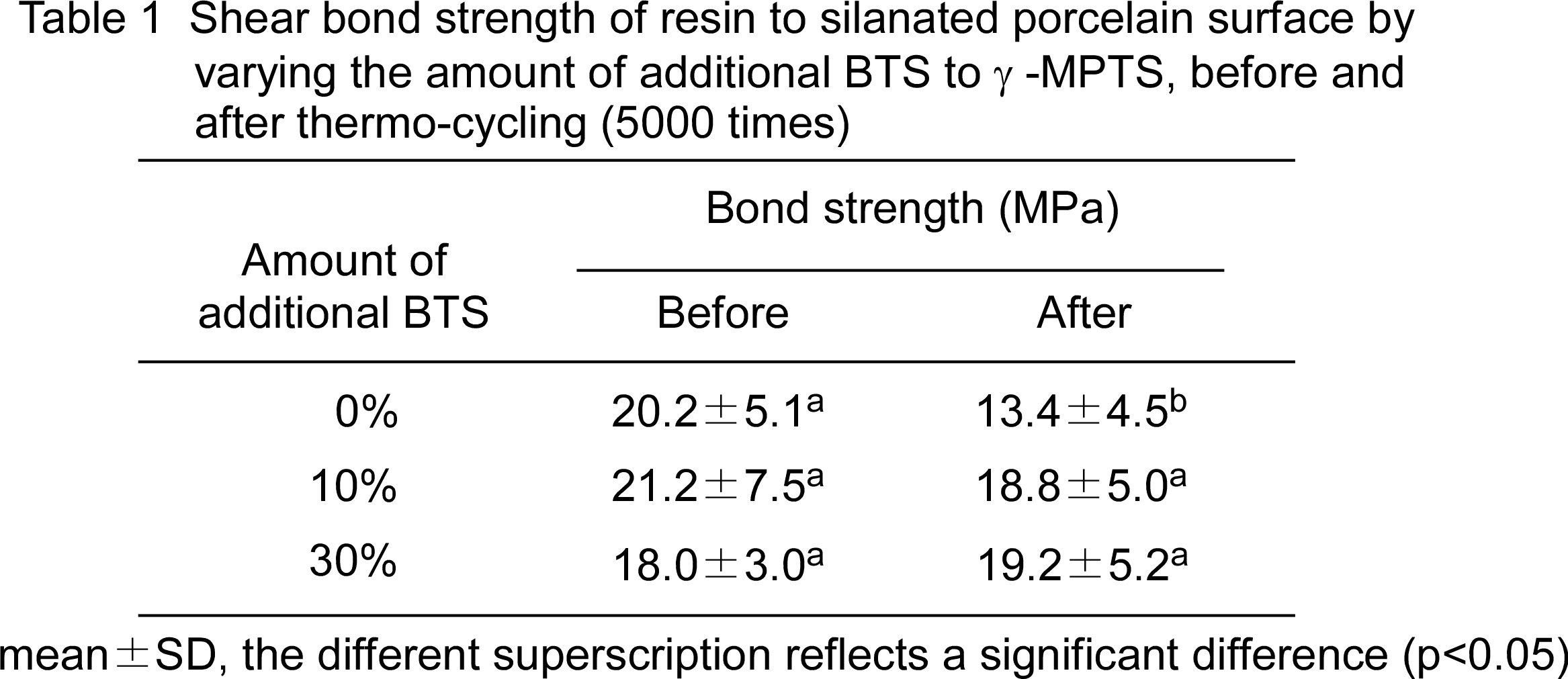ABSTRACT: 0364
Improvement of bond durability to porcelain by ceramic primer
| R. LI, M. AIDA, K. NEMOTO, and N. NISHIYAMA, Nihon University School of Dentistry at Matsudo, Japan | |
Click on images to view full size. Objectives: We designed two bottle type ceramic primer, consisting of the primer-A: a mixture of γ-Methacryloxypropyltrimethoxysilane (γ-MPTS) and 1,2-Bis trimethoxysilyl ethane (BTS) ethanol solution and the primer-B: an acidic aqueous solution. The effect from the additional amount of BTS to γ-MPTS for the primer-A on the bond durability of resin to porcelain surface was examined. Methods: The amount of additional BTS to γ-MPTS was 10 and 30mol%. Then, the primer-A was prepared after dissolving 50mg of mixed silane in 1ml of ethanol. The primer B was 50vol% ethanol solutions whose aqueous solution's pH value was 2.0, adjusted by adding hydrochloric acid. The porcelain surface (GN-10, GC) was grounded by 1000-grit silicone carbide paper, and was then silanated for 3 minutes. Thereafter, resin cement (Link Max) was adhered to silanated porcelain surface by irradiating visible light for 30 seconds. The shear bond strength of resin to porcelain was measured by using the testing machine, before and after thermo-cycling. Results: Table 1 shows the shear bond strength to the silanated porcelain surface. Before thermo-cycle, the initial bond strength slightly decreased with increasing the amount of additional BTS. However, the reduction in the bond strength, caused by the thermo-cycle, became smaller. Conclusion: The addition of BTS to γ-MPTS resulted in an increase in the bond durability. This increase was possible since the BTS acts as a plasticizer at the resin-porcelain interface, because of the BTS having no functional group for a radical polymerization. | |
| Seq #69 - Bond Durability 2:00 PM-3:15 PM, Thursday, July 3, 2008 Metro Toronto Convention Centre Exhibit Hall D-E | |
|
Back to the Dental Materials 1: Adhesion - Bond Strength Testing and Mechanisms Program | |
©Copyright 2008 American Association for Dental Research. All Rights Reserved.
